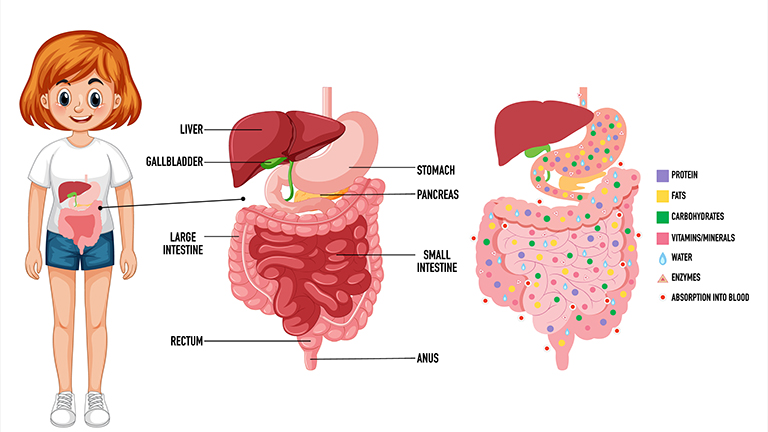Maintaining a healthy gut microbiome is one of the most powerful ways to support your digestion, immune system, and even mental health. Researchers now know that the trillions of gut bacteria living in your intestines play a vital role in overall wellness. But what exactly is the gut microbiome, and how can you keep it balanced? Let’s explore everything you need to know, from best foods for gut health to lifestyle changes that restore gut balance naturally.
What is the Gut Microbiome and Why It Matters
The gut microbiome refers to the community of bacteria, fungi, viruses, and other microorganisms that live in your digestive tract. A diverse and balanced gut flora helps with:
- Breaking down food and absorbing nutrients
- Supporting the immune system
- Protecting against harmful pathogens
- Regulating metabolism
- Communicating with the brain through the gut-brain connection
An imbalance, called dysbiosis, may contribute to digestive problems, inflammation, allergies, obesity, and even mood disorders.
Signs of an Unhealthy Gut Microbiome
You may not realize it, but your body gives signals when your gut health is out of balance. Common signs include:
- Bloating, gas, or constipation
- Food intolerances or sensitivities
- Frequent sugar cravings
- Fatigue and poor concentration
- Skin issues like acne or eczema
- Mood changes such as anxiety or depression
- Weakened immunity and frequent illness
If you experience these symptoms, improving your gut microbiota diversity could make a huge difference.
Best Foods to Improve Gut Microbiome Naturally
Food is the number one tool for creating a healthy gut microbiome. Adding a variety of plant-based and fermented foods can help your gut flourish.
- High-fiber foods (oats, lentils, beans, whole grains, apples, bananas) feed beneficial bacteria.
- Fermented foods for gut health (yogurt, kefir, kimchi, sauerkraut, miso, kombucha) provide natural probiotics.
- Polyphenol-rich foods (berries, green tea, dark chocolate, olive oil) nourish healthy gut flora.
- Omega-3 rich foods (salmon, chia seeds, flaxseeds, walnuts) support anti-inflammatory bacteria.
A plant-rich gut microbiome diet with at least 30 different plants a week is recommended for optimal digestive health.
Role of Probiotics and Prebiotics in Gut Health
To improve your gut bacteria balance, you need both probiotics and prebiotics:
- Probiotics for gut health: Live microorganisms found in fermented foods or supplements. They help restore gut flora and improve digestion naturally.
- Prebiotic foods: Dietary fibers that feed probiotics. Examples include garlic, onions, asparagus, bananas, and whole grains.
When combined, probiotics and prebiotics create a strong foundation for a healthy gut microbiome.
Lifestyle Habits to Support a Healthy Gut
Beyond diet, your daily lifestyle has a big impact on your gut health. Helpful habits include:
- Regular physical activity, which boosts gut microbiota diversity
- Drinking plenty of water to aid digestion
- Avoiding unnecessary antibiotics and medications that disrupt gut flora
- Eating slowly and mindfully to improve nutrient absorption
- Spending time outdoors to expose your body to beneficial microbes
How Stress and Sleep Affect the Gut Microbiome
Your gut and brain are deeply connected. Chronic stress and poor sleep can disrupt the gut microbiome, leading to digestive problems and mood disorders.
- Stress increases gut inflammation and reduces beneficial bacteria.
- Poor sleep alters the balance of gut flora, affecting energy and immunity.
Practicing mindfulness, yoga, meditation, and ensuring 7–8 hours of quality sleep can help restore gut flora balance.
Gut-Brain Connection: How Your Microbiome Affects Mood
The gut-brain axis is a two-way communication system between your gut and brain. Studies show that an imbalanced microbiome may contribute to depression, anxiety, and brain fog.
A diverse gut microbiome diet rich in probiotics and prebiotics has been linked to better mood regulation and mental clarity. Supporting your gut may also mean supporting your mind.
Foods to Avoid for a Healthy Gut Microbiome
Just as some foods heal the gut, others can harm it. To restore and maintain balance, limit:
- Processed foods and refined sugars
- Artificial sweeteners (which may disrupt gut flora)
- Excess alcohol
- Red and processed meats in large amounts
- Highly fried and oily foods
These foods may lead to inflammation, leaky gut, and microbial imbalance.
Can You Restore Gut Microbiome After Antibiotics?
Yes, but it takes time. Antibiotics wipe out both good and bad bacteria, which can affect your gut microbiome diversity. To rebuild:
- Eat more fermented foods and prebiotic fibers
- Consider probiotics for gut health after consulting a healthcare provider
- Focus on whole, unprocessed foods
- Avoid excessive sugar, which feeds harmful bacteria
With consistent effort, you can restore gut microbiome balance within weeks to months.
Daily Tips to Maintain a Balanced Gut Microbiome
Here are simple ways to keep your gut healthy every day:
- Eat a colorful variety of fruits and vegetables.
- Include at least one fermented food daily.
- Stay hydrated with water and herbal teas.
- Manage stress with relaxation techniques.
- Prioritize 7–9 hours of sleep nightly.
- Move your body through walking, yoga, or exercise.
- Avoid overuse of antibiotics and unnecessary medications.
Final Thoughts
Your gut microbiome is the foundation of your health, influencing everything from digestion to immunity and even mental wellbeing. By eating the best foods for gut health, adding probiotics and prebiotics, and adopting gut-friendly lifestyle habits, you can achieve a healthy gut microbiome and improve your quality of life naturally.


